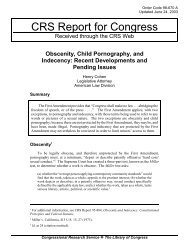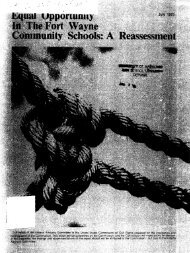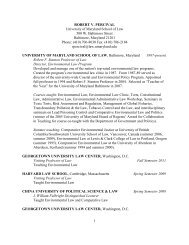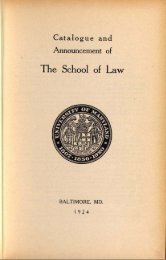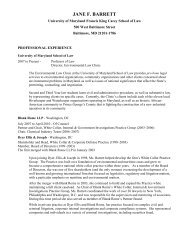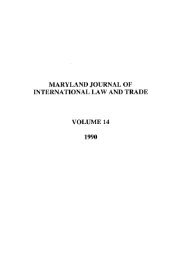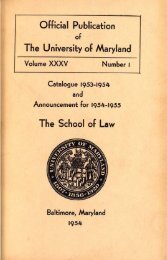Reducing Teen Pregnancy: Adolescent Family Life and Abstinence ...
Reducing Teen Pregnancy: Adolescent Family Life and Abstinence ...
Reducing Teen Pregnancy: Adolescent Family Life and Abstinence ...
You also want an ePaper? Increase the reach of your titles
YUMPU automatically turns print PDFs into web optimized ePapers that Google loves.
CRS-2<br />
married. Others agree that it is better for teenagers to abstain from sex but are primarily<br />
concerned about the negative consequences of sexual activity, namely unintended<br />
pregnancy <strong>and</strong> sexually transmitted diseases (STDs). These two viewpoints are reflected<br />
in two pregnancy prevention approaches. The <strong>Adolescent</strong> <strong>Family</strong> <strong>Life</strong> (AFL) program<br />
encompasses both views <strong>and</strong> provides funding for both prevention programs <strong>and</strong><br />
programs that provide medical <strong>and</strong> social services to pregnant or parenting teens. The<br />
<strong>Abstinence</strong> Education program centers on the abstinence-only message <strong>and</strong> only funds<br />
programs that adhere solely to bolstering that message. (For information on Title X,<br />
which serves a much broader clientele than teens <strong>and</strong> pre-teens, see CRS Report 97-1048,<br />
The Title X <strong>Family</strong> Planning Program.)<br />
The <strong>Adolescent</strong> <strong>Family</strong> <strong>Life</strong> Program<br />
The AFL demonstration program was enacted in 1981 as Title XX of the Public<br />
Health Service Act (P.L. 97-35). It is administered by the Office of <strong>Adolescent</strong> <strong>Pregnancy</strong><br />
Programs, Department of Health <strong>and</strong> Human Services (HHS). From 1981 until 1996, the<br />
AFL program was the only federal program that focused directly on the issues of<br />
adolescent sexuality, pregnancy, <strong>and</strong> parenting. 3<br />
Program Purpose. The AFL program was designed to promote — family<br />
involvement in the delivery of services, adolescent premarital sexual abstinence, adoption<br />
as an alternative to early parenting, parenting <strong>and</strong> child development education, <strong>and</strong><br />
comprehensive health, education, <strong>and</strong> social services geared to help the mother have a<br />
healthy baby <strong>and</strong> improve subsequent life prospects for both mother <strong>and</strong> child.<br />
Allowable Projects. The AFL program authorizes grants for three types of<br />
demonstrations: (1) projects provide “care” services only (i.e., health, education, <strong>and</strong><br />
social services to pregnant adolescents, adolescent parents, their infant, families, <strong>and</strong> male<br />
partners); (2) projects which provide “prevention” services only (i.e., services to promote<br />
abstinence from premarital sexual relations for pre-teens, teens, <strong>and</strong> their families); <strong>and</strong><br />
(3) projects which provide a combination of care <strong>and</strong> prevention services. Any public or<br />
private nonprofit organization or agency is eligible to apply for a demonstration grant.<br />
AFL projects can be funded for up to five years. Currently, the AFL program is<br />
supporting 107 demonstration projects across the country. (Source:<br />
[http://opa.osophs.dhhs.gov/titlexx/oapp.html])<br />
AFL care projects are required to provide comprehensive health, education, <strong>and</strong><br />
social services (including life <strong>and</strong> career planning, job training, safe housing, decisionmaking<br />
<strong>and</strong> social skills), either directly or through partnerships with other community<br />
agencies, <strong>and</strong> to evaluate new approaches for implementing these services. AFL care<br />
projects are based within a variety of settings such as universities, hospitals, schools,<br />
public health departments, or community agencies. Many provide home visiting services<br />
3 The predecessor of the AFL program was the <strong>Adolescent</strong> <strong>Pregnancy</strong> program, which was<br />
enacted in 1978 (P.L. 95-626). The <strong>Adolescent</strong> <strong>Pregnancy</strong> program was designed to alleviate the<br />
negative consequences of pregnancy for the adolescent parent <strong>and</strong> her child (i.e., the care<br />
component of the AFL program). The <strong>Adolescent</strong> <strong>Pregnancy</strong> program was consolidated into the<br />
Maternal <strong>and</strong> Child Health Block Grant when the AFL program was enacted.





